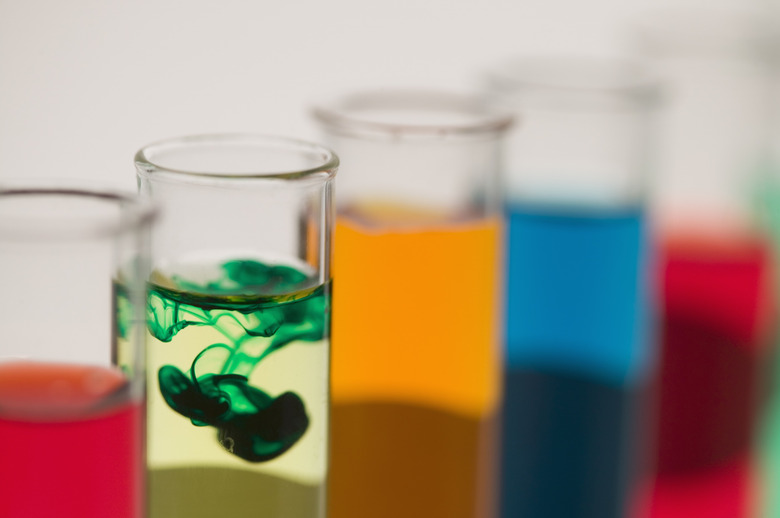What Effect Does Temperature Have On The Process Of Diffusion?
Learn the effect that temperature has on the process of diffusion to understand how to speed up the process and how to increase the rate of most chemical reactions. Diffusion is a process by which a concentrated group of molecules gradually becomes less concentrated, either by mixing with nearby molecules or simply by moving to a lower concentration area. The process of diffusion is affected by temperature in the same way most reactions are.
Simple Diffusion
Simple Diffusion
In basic terms, diffusion can be defined as the process by which particles spread out. This is generally from an area where they are high in concentration to an area where they are in a lower concentration. This can be understood by thinking of a pan with onions cooking in it. The smell given off by the onions is very concentrated in the top of the pan, above the cooking onions. The molecules, therefore, move into an area when they are in lower concentration, such as the surrounding air. Eventually, the smell spreads throughout the kitchen or even the entire home.
Mixing Diffusion
Mixing Diffusion
If two different gases or liquids are close to each other, the process of diffusion causes them to mix together. Imagine two gases separated by a partition. The free-moving gas molecules bounce off the central partition as they whirl around in their container. If the partition is removed, the gases mix as the molecules move around. This is related to the second law of thermodynamics, which states that in a closed system, all things tend toward entropy. "Entropy," for this purpose, can simply be defined as disorder; therefore, unmixed particles in a closed system tend to mix, or diffuse.
Temperature and Reaction Rate
Temperature and Reaction Rate
Chemical reactions are more violent than they may seem. Many reactions occur when atoms smash into each other and form a bond. At normal temperature, the atoms meander around in the solution or container and only collide occasionally. When the temperature is increased, the atoms move a lot quicker, like you would if you were walking on hot coals. This causes more collisions to occur much faster and therefore, increases the reaction rate. This is a general rule for any chemical reaction.
Temperature and Diffusion
Temperature and Diffusion
The process of diffusion is all about particles moving from high concentration areas to low concentration areas, or mixing together. Both of these things are dependent upon the movement of the atoms, and are therefore susceptible to the aforementioned effects of temperature. As the temperature is increased, the process of diffusion occurs more rapidly and the faster molecules spread out or mix with other molecules more quickly.
Cite This Article
MLA
Johnson, Lee. "What Effect Does Temperature Have On The Process Of Diffusion?" sciencing.com, https://www.sciencing.com/effect-temperature-process-diffusion-10046049/. 24 April 2017.
APA
Johnson, Lee. (2017, April 24). What Effect Does Temperature Have On The Process Of Diffusion?. sciencing.com. Retrieved from https://www.sciencing.com/effect-temperature-process-diffusion-10046049/
Chicago
Johnson, Lee. What Effect Does Temperature Have On The Process Of Diffusion? last modified August 30, 2022. https://www.sciencing.com/effect-temperature-process-diffusion-10046049/
